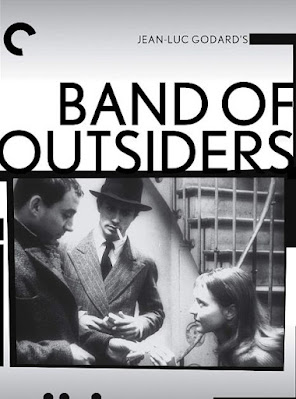The anarchist, non-conformist, prankster, satirist, cynic, romantic and mad genius residing within Godard were all on dazzling display in Pierrot Le Fou – his exuberant, impudent, goofy and crazy gem. He took the template of outlaw lovers – or, in his words, the “the last romantic couple” – on crime spree, and deliriously punched into that pop-art aesthetics, wacky humour, comic-book violence, idiosyncratic genre subversion, sardonic class commentary, hilarious satire on consumerism, lacerating indictment on militarism, and a whole lot of manic fun, thus making this a dizzying mosaic packed with political, cultural, cinematic and literary references. That his marriage to Anna Karina was falling apart, added a poignant touch to their fifth and penultimate collaboration. Ferdinand (Jean-Paul Belmondo) – a media exec leading an unfulfilled bourgeois existence filled with ennui, domesticity and shallow social circles, and married to a well-off wife (Graziella Galvani) who’s consumed by vacuous consumerism – takes off on a whim with Marianne (Karina), his ex-girlfriend and member of an underground racket on the run from OAS gangsters. They steal cars, commit murders, swindle, and engage in subterfuge as they ride drive Paris to Côte d’Azur in search of escape and idyll. Along the way they encounter dwarf criminals, perform a couple of infectious musical sequences, make buffoons of American GI’s through a parodic agitprop street theatre on the Vietnam War, etc. Belmondo as the deadpan and philosophical Ferdinand, and Karina as the enchanting and impulsive Marianne, made for an unforgettable pair in this zany work flamboyantly photographed by Coutard. American filmmaker Samuel Fuller, in an ironic cameo, mentions “cinema is like a battleground”… Godard emphatically espoused that maxim here, and made it his raison d'être over his radical career.
Director: Jean-Luc Godard
Genre: Drama/Black Comedy/Satire/Road Movie/Musical/Avant-Garde
Language: French
Country: France











